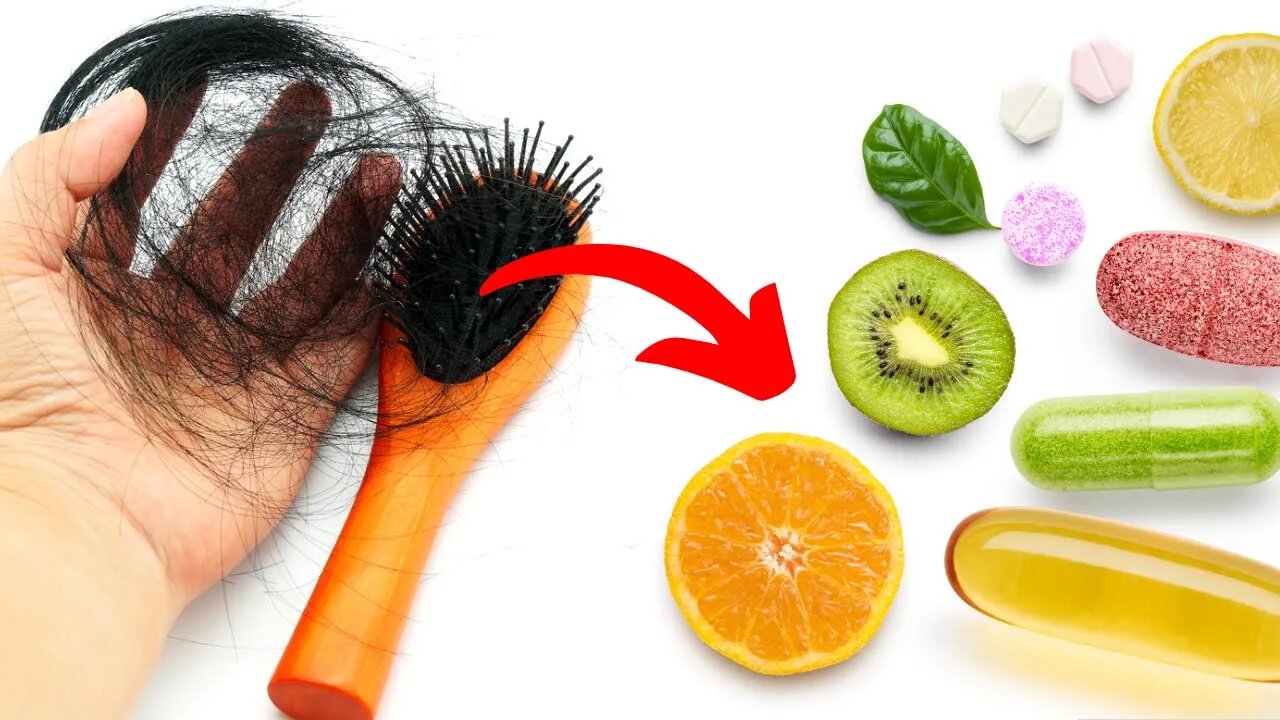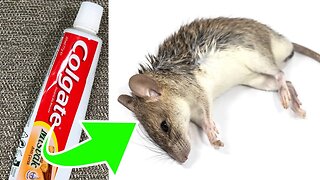Premium Only Content

These Vitamins Make Your Hair Stop Falling Out And Grow Back Quickly
Before you start the video, tell me about it: do you have short hair and want it to grow faster, or do you already have long hair but have trouble growing it?
A common desire of many women is to speed up hair growth. But not only women, many men also wish to have long, healthy hair!
But did you know that your diet has a direct influence on this process in your body? Just as vitamins are important for the proper functioning of the body, they also affect the structure, growth and maintenance of hair. Did you know that?
Hair needs nutrients to grow healthy, and a lack of them can lead to hair loss, hair breakage or even slower hair growth. If you've any of these problems, a nutrient deficiency is probably the cause.
So find out the best vitamins for hair growth in today's video.
Many factors can affect hair health, including hormonal and genetic factors. In addition to vitamins, your diet should include foods rich in complex carbohydrates, good fats, and minerals.
Check out now the 5 vitamins that contribute to hair growth:
Vitamin A
It's important for the cell renewal process, maintenance and development of hair tissue. In addition, a deficiency of it in the organism reduces cellular activity and favors the occurrence of infections. Studies also show that vitamin A deficiency is associated with hair loss and baldness. However, excessive consumption of vitamin A can affect hair growth.
Vitamin B7 (Biotin)
Biotin plays a very important role in the metabolism of proteins, carbohydrates and fats. The nutrient is also known for its effect on skin, nails and hair. A deficiency of vitamin B7 is associated with weakness and hair loss.
Vitamin C (ascorbic acid)
Known as a powerful antioxidant, it helps fight free radicals and prevent oxidative stress in cells. - a process that affects hair growth and health, especially as we age. In addition, vitamin C promotes the absorption of iron by the body, as its deficiency is associated with hair loss.
Vitamin D
Vitamin D is produced by the human body through sun exposure and is important for bone health and the immune system. The nutrient is also beneficial for hair follicles. Studies show that a deficiency of this vitamin also leads to hair loss.
Vitamin E
Like vitamin C, vitamin E helps fight oxidative stress, which accelerates aging. Its consumption is recommended to improve hair health. A study of people with baldness has shown that eight months of vitamin E supplementation contributes to hair growth. Iron Iron is also responsible for balancing the scalp and helps hair grow faster. Therefore, a sufficient amount of this mineral is important to prevent and treat hair loss.
Zinc
Zinc is a mineral that accelerates hair growth and is very important for the scalp. It contributes to the growth and strengthening of hair and beard.
Now that you know which vitamins are important for the growth of your hair, you should always remember that it's best to have a medical follow-up with a dermatologist, nutritionist or dietician to adjust the amount of vitamins for your body to achieve your goals.
In addition, there are already some supplements on the beauty market that promise to support the healthy growth of hair strands. They serve as a substitute for essential vitamins that we often can't get in the ideal amount through our daily diet.
So, did this information help you? If you didn't know, let me know in the comments.
Share this video with the people you know and help them get healthier too!
Follow us on:
Facebook - https://bit.ly/38BWbw3
Pinterest - https://bit.ly/2Irvwa6
For sources and references:
https://www.naturalcures.online/these-vitamins-make-your-hair-stop-falling-out-and-grow-back-quickly/
---------------------------------------
Disclaimer: The materials and the information contained on Natural Cures channel are provided for general and educational purposes only and do not constitute any legal, medical or other professional advice on any subject matter. These statements have not been evaluated by the FDA and are not intended to diagnose, treat or cure any disease. Always seek the advice of your physician or other qualified health provider prior to starting any new diet or treatment and with any questions you may have regarding a medical condition. If you have or suspect that you have a medical problem, promptly contact your health care provider.
-
 3:40
3:40
Natural Cures
1 year ago $1.10 earnedToothpaste Is All You Need To Keep Mice Away From Your House
4.49K6 -
 DVR
DVR
DLDAfterDark
7 hours ago $0.76 earnedDLD Live! Trump - Flag Burning - Glock & Gun Control - Martial Law Light?? - After Hours Armory
8.56K -
 LIVE
LIVE
GritsGG
13 hours agoRumble Customs! 3515 Ws! 🫡!
291 watching -
 5:59:47
5:59:47
SpartakusLIVE
8 hours agoThe HUGEST Brain (not forehead) delivers Saturday SPARTOONS || Variety Later - Shadow of Mordor
181K4 -
 2:34:20
2:34:20
Barry Cunningham
9 hours agoPRESIDENT TRUMP WELCOMES FOOTBALL SEASON! AND MORE BREAKING NEWS!
72.6K45 -
 54:47
54:47
Side Scrollers Podcast
13 hours agoSide Scroller Presents KING OF THE KART | MASSIVE MARIO KART TOURNAMENT
41.7K -
 4:12:33
4:12:33
Mally_Mouse
13 hours ago🔥🍺Spicy HYDRATE Saturday!🍺🔥-- Let's Play: Baldur's Gate!
34.2K3 -
 2:26:32
2:26:32
BooniesHQ
8 hours agoGame Of SKATE Shaun Hover Vs. Jeff DeChesare: Boonies Skate Night 1
108K5 -
 LIVE
LIVE
MissesMaam
3 hours agoAmong Us 3D (ft. Rumblers) 💚✨
72 watching -
 LIVE
LIVE
S0lidJ
4 hours ago🟢Live - S0lidj - Solo Snipes
52 watching